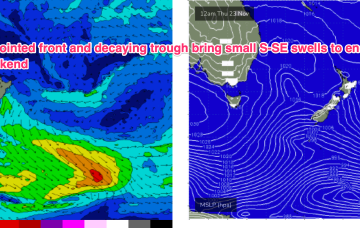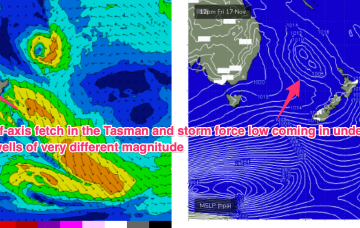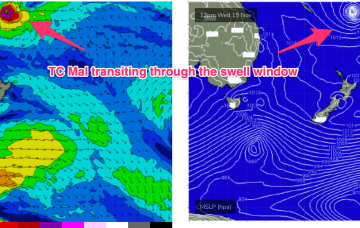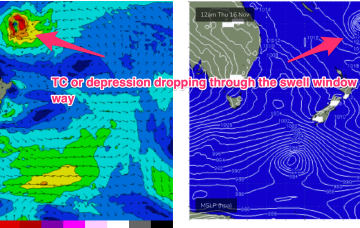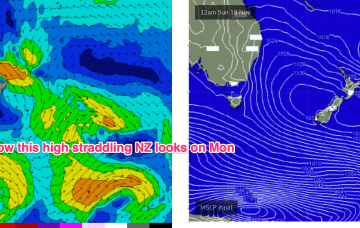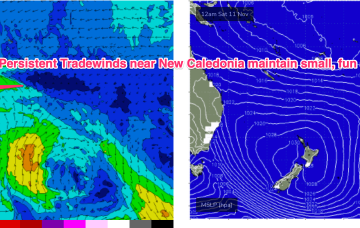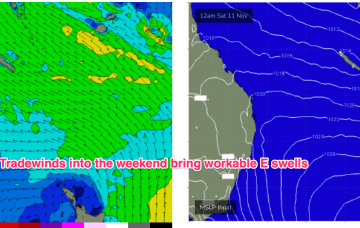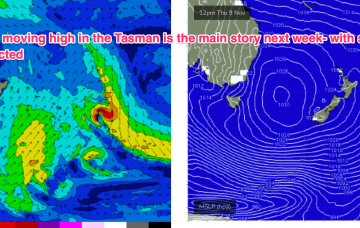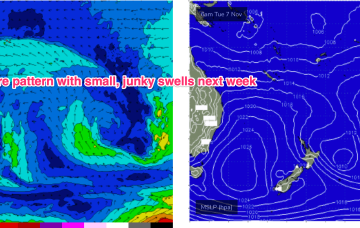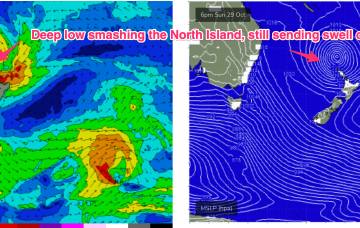The troughy pattern remains installed into the medium term so we’re still keeping an eye out for short range features which could supply local swell sources, although these look small and weak.
Primary tabs
In the mix will be some inconsistent E swell from TC Mal’s run through the swell window. It accelerated as it hit the swell window so a slight winding back in size is justified but we’ll still see some defined sets in the 3 occ. 4ft range through Sat morning, easing during the day.
TC Mal enters the swell window later today and we may see some small E/NE swell Sat. The TC moves at angles to the swell window which is not good for swell production but there are winds to 60kts as it enters the swell window o/night so we can expect some bigger 4ft sets with rogue 5ft sets a real possibility.
In addition the tropical depression or TC (Mal) which is expected to track SE through the swell window Wed/Thurs is expected to send some small E/NE swell our way. It’s a tricky, compact free-standing system but we can reasonably expect some 3 occ. 4ft sets Sat into Sun with revision to come this week.
Much stronger frontal activity in the Far Southern Tasman tied to a deep, slow moving low will provide some long period S’ly groundswell pulses next week, favouring NENSW, although winds are looking very tricky around a troughy pattern.
A weak ridge up the sub-tropics has a lighter E’ly flow with stronger N-NE winds developing south of the border. We’ll see this pattern with increasing NE windswell on the MNC and some workable trade swell in the sub-tropics.
Surf-wise the tradewind fetch will be chugging away and like all tradewind fetches once we get a fully developed sea state we should see an improvement in size and quality.
The trade flow is enhanced by another tropical development linked to a Westerly wind burst (WWB) extending from PNG longitudes into Fijian areas. This WWB is creating a long, angled trough through the South Pacific Convergence Zone and squeezing onto the large high as it moves slowly in New Zealand longitudes.
The deep Tasman low near the North Island has now dissipated and left the building with a small low in the Central/Southern Tasman supplying small S swells and an even smaller trough of low pressure off the Far North Coast directing SE winds onto the coast. This pattern remains slow moving as large high slowly approaches from South of the Bight and multiple inland troughs supply unstable weather.
The Tasman low of sub-tropical origins which has sprayed the East Coast with swell is now just north of the North Island, with some swell generating winds still active to the west of the North Island, although quite limited in length. It’s deepened and is hammering the North Island sending another pulse of E/SE swell our way.

